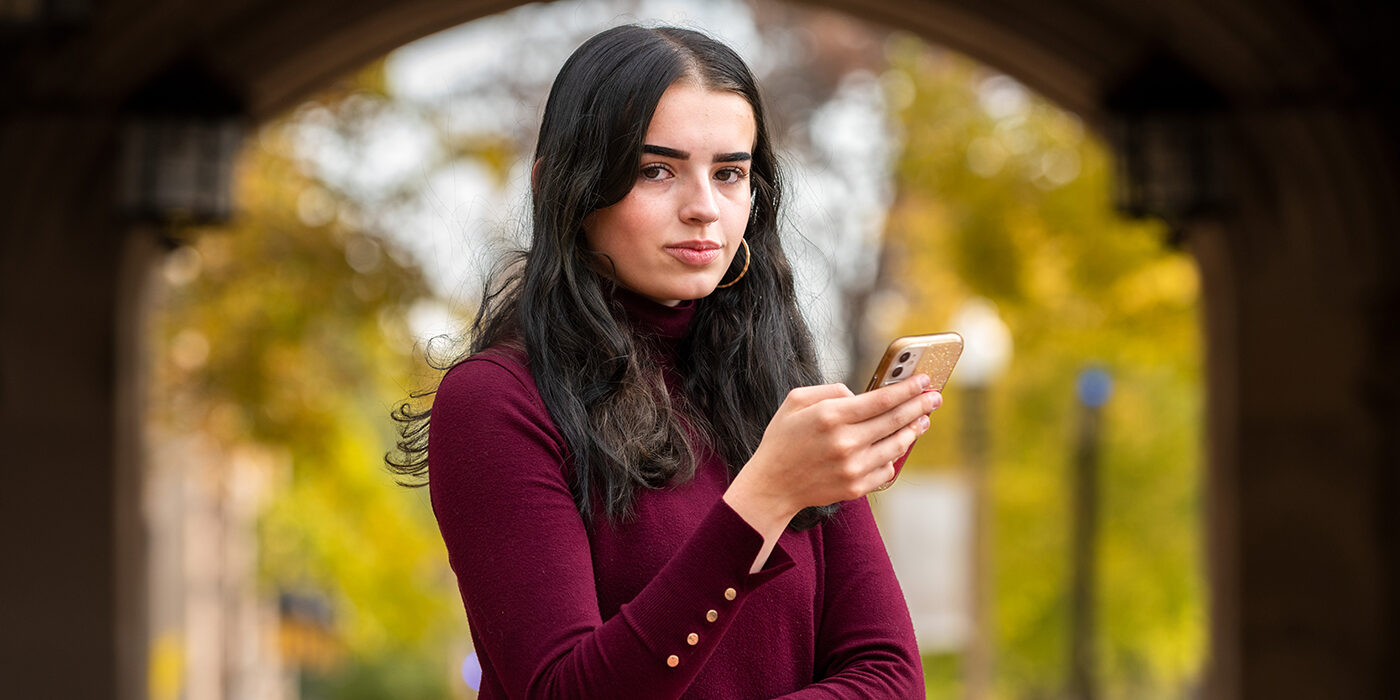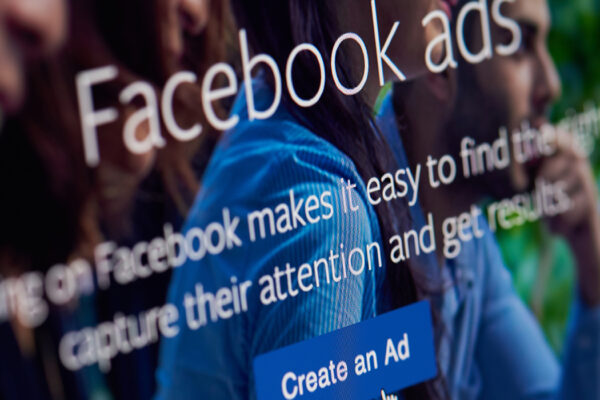Washington University in St. Louis first-year student Emma Lembke didn’t need a Facebook whistleblower or neuroscience researchers to tell her that social media messes with the adolescent brain. She lived it.
“The more time I spent on social media, the more anxious and isolated I felt, which is, of course, ironic because people turn to social media in order to not feel isolated,” said Lembke, who is from Birmingham, Ala. “I knew it couldn’t just be me. Why weren’t more people not discussing how negative social media can be? Why is everyone turning to their screens instead of each other? That anger catalyzed my desire to want to fix the problem or, at least, to engage in the conversations I was missing.”
So in high school, Lembke founded Log Off, an organization for and by teens who want to raise awareness about social media’s impact on mental health. Members from across the globe have launched a blog, a podcast, a character education curriculum and hope to start a network of school and campus chapters. Lembke also recently started Tech(nically) Politics, an advocacy group that will push for regulatory change.

“The genie is not going back in the bottle,” Lembke said. “The question is how do we live with this and produce social media in a humane way.”
Here, Lembke shares how she deals with social media, what prompted her to start Log Off and why she will never unfollow Olive Garden.
What were your earliest interactions like on social media?
I started with Instagram in sixth grade. I remember the moment so well because I was the last in my friend group to get Instagram. I spent hours following people. I followed everyone — Beyonce, Olive Garden. It was this amazing moment when I felt connected to everyone in the world.
And that lasted for a while. But soon I was on social media five, six hours a day. I became obsessed with the number of followers I had and the number of likes and comments I was getting. My feed presented this weird reality where everyone looked perfect and lived this perfect world. I constantly was judging myself against these standards.
When did you know you had to break the cycle?
I remember hearing the buzz of my phone and the Pavlovian response to reach and grab it. I remember thinking, “Why can’t I snap out of this cycle? There has to be something more.” And then I began researching. I found all of this information about how social media works and how it impacts young people. But the one thing I couldn’t find was a community where people could get together and talk about how social media was affecting their mental health. That’s what led to Log Off.
And now you’ve launched Tech(nically) Politics, which advocates for laws and regulations to protect young people. How will this group make an impact?
We don’t have the vote, but we have these stories that carry so much power and can help prevent any further harm to younger generations. I really see this beautiful desire within members of my generation, Gen Z, to protect their younger siblings and people who are next, because this shouldn’t happen again. We were the generation that really got harmed because there was no regulation in place. I don’t blame the government. I don’t blame any specific people because I don’t think anyone knew the extent to which this could really infiltrate society and harm children. But now we do. The action has to begin. We should investigate what other nations have done and explore what would be effective here. Can we regulate auto scrolling? Neuromarketing? The algorithms that manipulate us?
Do you use social media?
Absolutely. I love getting funny memes from my sisters and sending selfies to my friends. But I try to resist that pull to respond to everything. It was hard during orientation week. Everyone was like, “What’s your Snapchat? What’s your Snapchat?” There was this feeling that I had to respond to a billion people I didn’t know. And in college, you feel like you have to curate this online persona because that is the first impression people see of you.
What strategies have helped you control your usage?
I unfollowed a lot of celebrities, and that made a difference. I downloaded apps that ask me if I want to be on my phone right now. I‘ve done greyscale. Establishing those smaller boundaries that create friction between me and these addictive platforms made me feel like I could use social media in a way that actually benefits me.
So no Olive Garden?
My best interaction ever on social media is when I posted, “I ♥️ Olive Garden” and they responded, “We ♥️ you.” So Olive Garden stays.


